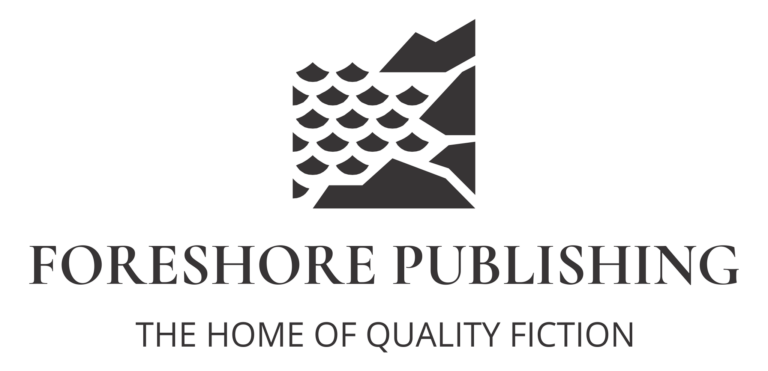
As Springtime in the Bones prepares for its English debut, it offers readers a rare and resonant journey—a tale of trauma and tenacity, heartbreak and humour, told with an uncompromising poetic voice. It is a testament to the healing power of storytelling and the indispensable value of bringing diverse voices into the global literary conversation. At the heart of Springtime in the Bones is Luísa—a successful publicist navigating the aftermath of two earthshaking events: a violent rape and a painful divorce. Állex Leilla’s narrative courageously explores this woman’s deeply personal journey of anger, heartbreak, and ultimately, renewal. Speaking about her novel, Leilla describes it as “a novel at once poetic and painful, because it shows a woman rebuilding after suffering a rape, and, shortly before this assault, going through an equally difficult divorce. Luísa has a very peculiar sense of humour, loves literature, rock, and film. The story revolves around her quest for revenge and rediscovery—the metaphor of spring renewing everything that winter froze perfectly fits her transformation.” Though the novel was first published as Primavera nos ossos in Brazil in 2010, its themes remain urgently relevant. Leilla reflects with both hope and sorrow: “It’s been 15 years, but the rates of sexual violence in Brazil remain high, especially in the big cities. Rape is one of the most abject forms of violence anyone can suffer. I hope the translation brings renewed attention to this important issue as well as the novel’s other layers.” For Leilla, the English translation is also a portal back to a pivotal time in her life and writing. “Surprisingly, I feel very connected to Primavera nos ossos today because I’m preparing my diaries from the period when I wrote it. These diaries bring old memories and insights to light, allowing me to revisit the emotions and context that shaped the novel’s creation.” Readers can expect more than a raw story: “They will encounter an authentic and complex adventure. I wanted to combine action—sometimes violent—with moments of poetry and humour, keeping paragraphs short and dialogue dynamic to make the story flow energetically.” Amanda Sarasien’s path to translating Springtime in the Bones began in 2020 when Leilla’s Brazilian publisher Casarão do Verbo sent her the manuscript. “I’m always drawn to literature from Bahia, a region rich in culture but underrepresented in translation. The book’s premise—a rape survivor plotting revenge in a noirish tale of impossible love—immediately drew me in. But it was Leilla’s voice, the musicality of the prose, and her playful, subversive manipulation of language that truly captivated me. This is an author who reveres language, both its power and limitations.” The translation process was a marathon of dedication and creativity. Sarasien explains: “It took about four years, juggling this with other projects. I usually read a book once before starting to translate, but with this novel’s cyclical, fragmented narrative and recurring themes, I re-read it many times. The narrative isn’t chronological—it loops like the seasons—so I often had to jump around in the manuscript to maintain consistency and grasp the full arc.” She adopted a strategic approach: “I translated the dialogue first to give the characters their voices in English. Dialogue is tricky to render authentically, so it was important to get that right from the start. Then, I tackled each chapter with multiple drafts, refining and revising. Sometimes, I spent an entire day on one paragraph to capture all the layers, images, and double meanings.” Extensive research and frequent discussions with Leilla helped Sarasien navigate the literary and pop-culture references peppered through the text. “Our collaboration was rewarding. Állex was always available, generously answering my questions without looking over my shoulder, and our correspondence became a rich exchange of insights—not only about the book but about literature and life.” For both Leilla and Sarasien, translated literature is a bridge connecting people beyond borders. Leilla highlights the broader cultural significance: “Literary translation is crucial for cultural exchange. It dissolves geographic boundaries of time and space, bringing people closer. We gain an intimate understanding of diverse cultures—both their unique features and universal human truths.” Sarasien points out the riches to be discovered in translated literature: “Anglophone publishing continues to produce only about 3% work in translation. In contrast, readers in many other languages engage extensively with fiction from around the world, so their literatures are in constant dialogue with ours. Translation into English makes that literary conversation a little less one-sided, infusing new voices, perspectives and narrative experiments into the canon. It’s thrilling and essential.” Beyond this project, both have rich literary backgrounds that shape their work. Leilla’s inspirations include classics like The Magic Mountain by Thomas Mann, which she admires for encapsulating twentieth-century history, The 25th Hour by Constantin Virgil Gheorghiu for its deep psychological insight, and Brazilian author Caio Fernando Abreu who showed her how to write poetically in prose. Sarasien’s literary path started early with a passion for languages—Spanish, French, Portuguese, and Mandarin—and a love of reading and writing. A late-career shift brought her into literary translation after an acquired disability. Her translating career took over a decade to fruition, marked by persistence and community support. She recommends aspiring translators to: “Read widely in all their languages, stay current with publishing trends, understand the markets in both source and target languages, and find a supportive community. Translation is a long road but deeply rewarding.” Her personal literary inspirations include Don Quixote studied in original 17th-century Spanish, which taught her about novelistic form; Jane Eyre for its layered themes and gothic atmosphere; and Ali Smith’s How to Be Both, admired for its linguistic playfulness and innovation. Foreshore Books, the small press imprint of Foreshore Publishing, will publish Springtime in the Bones in March 2026. AMANDA SARASIEN is a writer and literary translator working from Portuguese and French. A recipient of a 2022 National Endowment for the Arts Translation Fellowship, her work has appeared in Electric Literature, The Common, Chicago Review of Books, and elsewhere. She is a founding member of the Third Coast

Finding Belonging and Embracing Neurodiversity: The Heartfelt Journey of Kate McElderry’s New Novel Declan Someone (The Journey of Declan Noone). Kate McElderry’s highly anticipated debut – a coming-of-age story steeped in Celtic lore that follows a young man’s mystical journey in Ireland as he seeks roots, self-worth, and transformation – is a deeply personal and resonant story inspired by lived experience, decades of teaching, and a profound connection to place and identity. At its core, the book explores universal themes of belonging, kindness, and the complexities of navigating the world with neurodiversity. The spark for Declan Someone (The Journey of Declan Noone) came from a very real moment in an Irish pub that left a lasting impression on McElderry. She recalls: “I was locked out of a friend’s house one rainy Sunday night, feeling lost and anxious about a professional talk I had to prepare for the next day. When I walked into that pub, everyone turned to see me in my sorry, bedraggled state. But then, they just took me in. They bought me a meal, a pint, and encouraged me to practice my talk with them right there and then.” She continues, “One person said, ‘You belong here.’ That moment really touched and warmed me. I wanted to capture that spirit of shared humanity and kindness in Declan —how strangers can become mentors, friends, a kind of family on one’s journey.” Drawing on nearly three decades of teaching teens with ADHD, dyslexia, and anxiety, McElderry created Declan as a character navigating the complexities of the contemporary world while living with neurodiversity. “Declan has been living inside me for a long time,” she says. “It’s a mix of my old teenage writing and new work. I even found journals and stories my mother had saved, which inspired me to turn these pieces into something meaningful.” What stands out from the earliest chapters is the vividness of Declan’s voice and setting. McElderry describes, “I could literally imagine Declan wilting in the heat of New York. His voice was there from the start, and U2’s song ‘New York’ played in my mind as I wrote about those hot summers.” Her affection for Ireland also informs the novel deeply. “Ireland, especially the Wild Atlantic Way, feels like a spiritual home to me,” McElderry explains. “My stints there taught me to reframe loss and adversity and find joy and community. The culture and literature of Ireland are woven through Declan’s story.” McElderry’s personal experiences shape the narrative. She describes her younger self: “If I had to sum up my childhood self with book characters, I’d say I was a cross between Scout Finch from To Kill a Mockingbird and Anne of Anne of Green Gables. Like Anne, I was a free spirit with a big imagination, and like Scout, I was a tomboy who questioned injustices.” She also shares, “I’m neurodiverse myself, living with dyscalculia and synesthesia. Great teachers helped me overcome the anxiety I had around math, and that personal journey gave me insight into Declan’s world.” Writing remains central to McElderry’s life. “I started writing as a teen, creatively and as therapy, and also as an activist—pleading with politicians to save our planet,” she says with a laugh. Though those letters went unread, her passion for writing deepened. “I’ve worked mostly in educational and technical writing, but fiction always called me back. Despite the differences, all writing involves crafting ideas and connecting with readers.” An avid reader herself, McElderry believes reading fuels writing. “I’m a big believer in read-alouds for any age because humans are wired for storytelling,” she explains. She’s recently enjoyed books like Cloe Dalton’s Raising Hare and Phil M Shirley’s The Happening of Magic, and is currently absorbed in David Thomson’s The People of the Sea, which explores British and Irish selkie and merfolk legends, underscoring her love of folklore and myth. At its heart, Declan Someone (The Journey of Declan Noone) is a story about finding one’s place in the world and the unexpected communities that support us along the way. McElderry invites readers to journey with Declan and “rediscover what it means to belong—not just to a place or people but to oneself.” Declan Someone (The Journey of Declan Noone) is scheduled for release in spring 2026 under our imprint Foreshore Books. ABOUT THE AUTHOR Kate McElderry is passionate about storytelling, art, nature, and their confluence. She finds rocky coasts, tidepools, and the stories that both sides of the Atlantic hold, inspiring. Kate is neurodiverse and as a child was diagnosed with a learning difference. (Neurodivergent thinkers are often associated with ‘out of the box thinking,’ though due to her artist mother and creative teachers, Kate was never presented with a box nor put in a box. Instead, she was provided time, space, and opportunities to explore and create.) From her personal experience and career teaching students with dyslexia and ADHD, Kate is poised to write, speak, and educate about neurodiversity. She is the Director of Outreach and an educator at The Odyssey School in Baltimore County, Maryland. A published author, Kate, has written educational material, but Declan Someone (The Journey of Declan Noone) is her first novel. It weaves in writing from her teen years (a story and an essay) found in her mother’s attic with contemporary writing completed in Ireland. From afar, Kate is a member of the Irish Writers Centre, and other writing associations. When she is not teaching, speaking, or writing, Kate enjoys spending time with her family.

Author of children’s book, The Dog with No Fur -The Adventures of Leo, Michela Carbosiero talks about the inspiration behind her debut book and what’s coming next! Read on below to discover more about Michela, and Leo! … Could you tell us a bit about The Dog with No Fur -The Adventures of Leo? The Dog with No Fur is about a dog call Leo, born without any fur at all, who begins the book completely focused on one goal: to fix or hide his imperfections so he fits in and is not humiliated by other more popular dogs. But when nothing works Leo has to choose between hating himself and hiding away or standing out and feeling proud. The important lesson is loving yourself is the most important thing because everyone is special and unique. Leo is such a brilliant character. Where did the inspiration for him come from? The real Leo is a very special little dog. He has alopecia, which means he doesn’t have fur. But that never stops him from being the happiest dog with the brightest eyes and the kindest heart. Leo has a magical way of making people laugh—without even trying! He reminds us every day that joy doesn’t come from looking like everyone else. It comes from being proud of who you truly are. Transformation is a strong theme throughout the book. Was this always something you wanted to write about? I first wrote this story when I was just 14, while attending a hospital school and struggling with my mental health. Writing became my safe space, a way to express myself and transform something painful into something hopeful. You also include themes and issues that aren’t always talked about in children’s fiction, but you do it in such a sensitive and engaging way for the reader. Do you think there are more themes and issues that could be featured in fiction for young people? Through Leo, I found the perfect way to show children, and myself, that being different is not a weakness, it’s a superpower. When I was younger, I often felt “less than.” I worried every day that my differences made me weaker. But writing gave me confidence. It allowed me to create characters like Leo, who may be different, but in my eyes, shines brighter than the stars. His journey gave me a strength I didn’t know I had. As I watched this story unfold and grow, I realised how grateful I am, not just for writing, but for choosing myself. For choosing a life worth living. Leo’s story reflects my own journey he may have no fur, and I may not be perfect, but what I’ve learned is that self-love—real, unconditional self-love is what truly matters. What do you want readers to take away from this book? Kindness is key. And my greatest hope is that this book radiates kindness and hope to everyone who reads it. If my younger self could see me now, achieving a goal I once believed I wouldn’t live to reach, she would be proud. Proof that everyone has a place on this earth, and that we all carry a special presence. Being different is beautiful, and it’s something I would never change. What books/ stories/ authors have been an inspiration to you, and your writing? Julia Donaldson has always been a huge inspiration to me, and I adore Quentin Blake’s illustrations. When I was at school, I really looked up to Julia Donaldson’s work. Recently, I had the chance to watch her online course, Learn with Julia Donaldson: Create a Picture Book, and it truly inspired me to take the next step in my own creative journey! We’d love to know what’s up next for you. Are you writing anything new, or any other exciting news? I’m VERY excited about my next book, The Unique Universe: The Adventures of Leo, which will be out in 2026. It’s about a magical journey celebrating unique friends and unforgettable adventures. BUY THE BOOK Meet Leo — The Dog Who Learned to Shine Just as He Is! Now available for pre-order. Reserve your copy today! Add to Cart ABOUT THE AUTHOR Michela Carbosiero is a mental health advocate, social media content creator, and children’s book author driven by a deep passion for helping others. She believes that every person is wonderfully unique, and that individuality is something to be embraced and celebrated.



